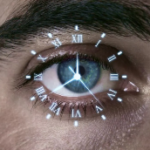All About Eyes: Ask an Ophthalmologist

By: Allen Zieker, M.D.
Board-Certified Ophthalmologist and Director of Cataract Surgery at Ophthalmic Consultants of the Capital Region
Q. I was told I have cataracts, but I didn’t need surgery yet. How do I know when it’s time to have cataract surgery?
A. Since cataracts take years to develop, most patients are totally unaware of their impact on daily life. Because of the gradual onset, we’ve even seen patients who are already legally blind from cataracts that we can fix.
Early on, cataract symptoms can be very mild. Driving at night is when many people first notice the signs of having cataracts. You may experience distracting glare from oncoming headlights or find it harder to read street signs. Oftentimes, reading in low light will be difficult.
SIGNS YOU MAY BE READY FOR CATARACT SURGERY INCLUDE:
- Decline in your distance and reading vision
Hazy, fuzzy, cloudy, or blurred vision
Increased sensitivity to light and glare (especially at night)
Lower night vision
Thinking your eyeglasses are dirty, but they’re not
The decision to have cataract surgery is based on when visual difficulties begin to interfere with normal activities of daily living, like driving, reading, work, or hobbies.
Poor vision due to cataracts can be a serious health risk. If you can’t see something in your path due to the cataract, you may trip or fall, leading to an injury.
WHEN IT’S SURGERY TIME
It’s important to find a skilled surgeon with a lot of experience. They should talk the time to discuss any concerns and explain the procedure in detail. If you don’t feel comfortable with the first physician you meet, that’s OK. Take the time to find the right cataract surgeon for you.

